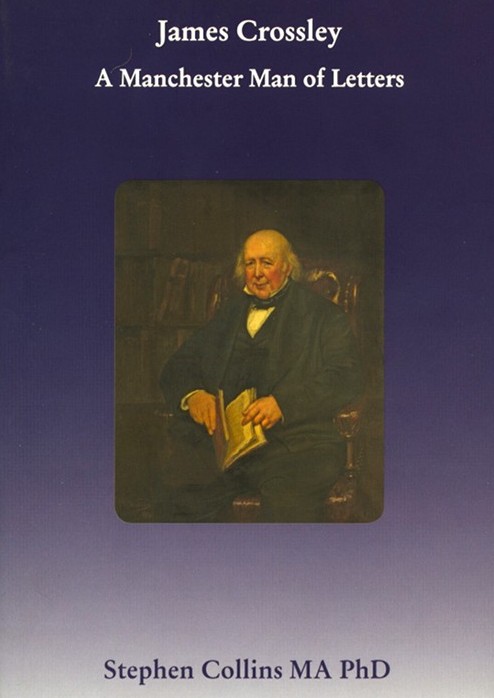The
Manchester Guardian, 1838:
Manchester was the scene of great constitutional change during the 1830s. The Municipal Corporations Act of 1835 allowed householders to petition the monarch for a charter of incorporation to be granted, which would enable them to appoint their own local government administration. Incorporation presented for the first time the possibility that administrative power might be removed from those who felt they had the right to it by virtue of property, position and tradition, and given to elected representatives. Manchester Tories were vehemently opposed to this proposal and any suggestion of reform. Their morale was low at this time, following repeated defeats at the polls, but the move in 1838 to incorporate the borough provided a rallying point and a cause to unify the ailing party.
James Crossley was a prominent solicitor, with
literary and antiquarian interests, who is probably best remembered for his
part in forming the Chetham Society. He was also active in the Conservative
cause and towards the end of 1838, when the incorporation debate was at its
height and tempers were running high on both sides, a dispute developed between
Crossley and the editor of the Manchester
Guardian, which culminated in a melodramatic challenge to a duel: A bizarre
and anachronistic proposal in the first industrial city.
Among the local newspapers, the Manchester Guardian championed the cause
of reform, while most others, including the Manchester
Courier, under its proprietor Thomas Sowler (a friend of Crossley’s), and
the Chronicle, took the opposite
view. Since its inception, in 1821, the Manchester
Guardian had reflected the
personality and politics of its editor, John Edward Taylor, who was on the
Liberal/Unitarian side of the schism which divided Manchester at the time (Crossley
was of course a dyed-in-the-wool ‘Church and King’ Tory). Taylor had long
interested himself in liberal politics, and had contributed articles to the
Liberal-leaning Manchester Gazette since
around 1812. He had also been accused of pamphleteering in anti-government
causes. When, for example, the Royal Exchange was burned down during a riot
protesting against Lord Sidmouth’s appointment as Home Secretary, Taylor was
said to have been the author of a handbill ‘which was posted in the town and
was held to have provoked the arson.’ In the course of vehemently denying this,
he was accused of criminal libel, a charge of which he was acquitted by a jury
under the foremanship of – appropriately enough – John Rylands. A little later,
in 1819, Taylor again produced an influential pamphlet, this time to counterbalance
Sidmouth’s anodyne account of the Peterloo massacre to government. These early examples show something of the
personality of the editor. He has been described as: ‘a small man of louring
mien and a priggish temperament “moral indignation came easily to him and he
could be infuriatingly patronising”’ 1
James Crossley (Chetham’s Library) and John Edward Taylor (John Rylands
Library).
A series of articles which appeared in Wheeler’s Manchester Chronicle were extremely critical of
Taylor, and he published a trenchant reply in his editorial, accusing the
'amateur writer' of falsifying a charge of corruption against himself in the
election of Commissioners of Police, and deliberately misquoting an article
that had previously appeared in the Guardian.
Without actually naming the author, Taylor continued:
These
tricks, worthy only of a disreputable lawyer, disentitle the man who is guilty
of them from being recognised by us as a controversialist upon whom we can
bestow any further notice in the matter. 2


